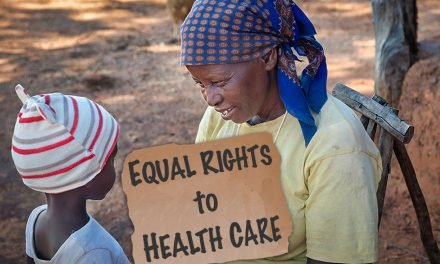World Humanitarian Day
How would you ‘Act for Humanity’?
The 2024 theme for World Humanitarian Day, commemorated each year on 19 August, is a clear call to action. Initially, the annual remembrance was created to mark the horrific bomb attack on the United Nations headquarters in Baghdad, which occurred on this day in 2003. 22 UN staff members lost their lives during the attack, including the then High Commissioner for Human Rights, Sergio Vieira de Mello.
Those who died were not there to impose their own beliefs – but merely to support the promotion, respect and protection of human rights for all; especially women, children, minorities and people with special needs.
These are the ideals that lie at the heart of humanitarian work. But you don’t have to work for the United Nations or an organisation like the Red Cross to be a humanitarian.
Who is a humanitarian?
Purely and simply, a humanitarian is someone with a strong desire to help people in need, to alleviate suffering, uphold human dignity and provide support during times of crisis. While many find their purpose or their livelihood in humanitarian work – pursuing careers in Social Work, International Relations and Public Health – it is possible for anyone to take humanitarian action.
Humanitarian Principles
The foundation of humanitarian action is based on 4 principles that inspire equality, compassion, empathy and efficiency.
Humanity – having the capacity to show benevolence, offer support and encourage harmony wherever there is a need for the protection of life and promotion of dignity.
Neutrality – the ability to remain unbiased and not take sides on issues of hostility or controversy, thus prioritizing meeting the needs of those in distress.
Impartiality – giving help freely; regardless of the race, nationality, gender, religion or political beliefs of those they help and without expectation of any reward.
Independence – remaining unaffected by the objectives of conflicting parties, pursuing the best course of action for the beneficiary.
Why are humanitarians important?
Humanitarians are the workforce that drive the mobilization of resources. They are our first responders in times of crisis to make relief accessible when natural, physical and circumstantial disasters strike. Many humanitarian actions are performed through personal or pooled funds, and through non-profit organizations that support human welfare – addressing issues of concern without slowing down the economy. If humanitarianism didn’t exist – those in need of protection would have nowhere to go, people in need of food would go hungry and disaster-struck areas would remain damaged.
How can you be a humanitarian?
NPO’s – Non-Profit Organizations like Tafta often find themselves in need of humanitarian action to assist in their objectives of providing relief to beneficiaries in distress. A simple search through an organizations website or social media will highlight what their needs are, letting you know how you can make a difference. If you need clarity, a phone call to an organization of your choice is always a great way to build a relationship and find a cause that is close to your heart.
Disaster relief – Pay close attention to urgent appeals that go out after a disaster has struck. Community social groups are the easiest way to stay informed and enquire on how you can be involved.
In-kind donations – You can donate pre-loved items and essentials to organizations all-year round. Having a recurring supply of these items are useful when organizations encounter beneficiaries when a need is identified.
Provision of food – Unfortunately, there are many people experiencing homelessness, lack of employment and poverty all around the world. A warm meal or groceries provided to someone not only meets the immediate need for nutrition, but can boost someone’s spirit and allows them to allocate the funds they do have to other areas of need.






